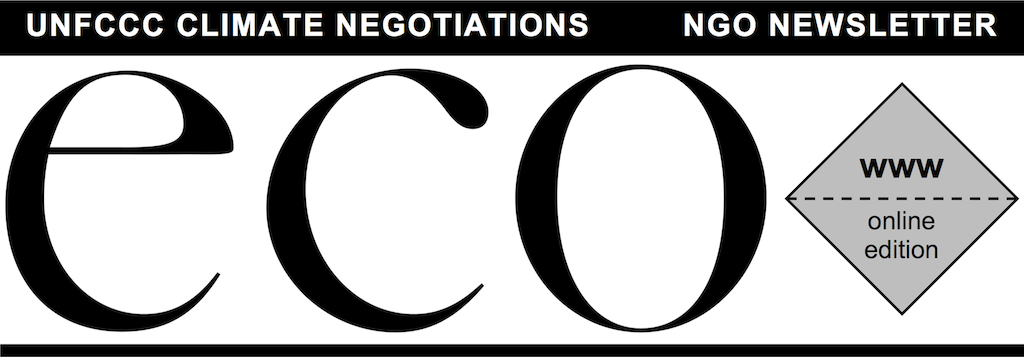Listening to the ongoing discussions in the ADP Workstream 2 on short term mitigation ambition, ECO suspects that some might not have read—or have forgotten—the size of the pre-2020 mitigation ambition gap. For all the rhetoric in the room, one might be convinced that nations have forgotten that they have the power to decide whether the world will remain below the 2°C threshold scientists maintain as critical. Technologically and economically feasible trajectories to remaining below the 2°C level have been outlined. Without acting now, they are willfully choosing to neglect the known mitigation ambition gap science has shown, as well as the opportunities that exist to bridge it.
In this context, ECO would like to remind delegates of what India, China and others have helpfully underlined during Workstream 2 (WS2) discussions thus far: the time has come for developed countries to do their “fair share” in reducing emissions by at least 40% by 2020 (and reflecting on their consumption patterns).
The 2014 Kyoto Protocol ambition review is one opportunity for nations to reflect on the comparable upward revisiting of pledges; for instance, the EU has achieved its 20% target years ahead of schedule but with no expressed intention, yet, to step up its own ambition until 2020; or Australia, for whom, recent research shows, upping their pledge from 5% to 25% comes at essentially zero net costs.
... Read more ...
![]()

